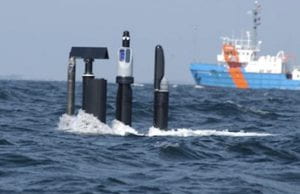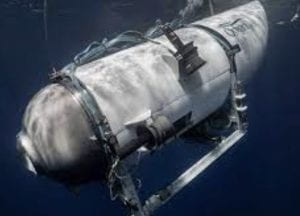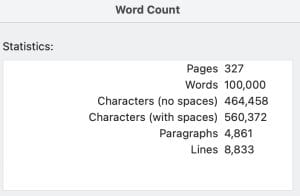 Up Periscope is a 1959 World War II submarine film directed by Gordon Douglas. We often think the phrase “up periscope” is used when the skipper of a submarine wants to check his surroundings. I thought as much, but then realised that modern submarines don’t have a traditional periscope. In fact, they have two “periscopes”, or rather photonics masts which house instruments for not just observing the visual environment, but for collecting a range of scientific data.
Up Periscope is a 1959 World War II submarine film directed by Gordon Douglas. We often think the phrase “up periscope” is used when the skipper of a submarine wants to check his surroundings. I thought as much, but then realised that modern submarines don’t have a traditional periscope. In fact, they have two “periscopes”, or rather photonics masts which house instruments for not just observing the visual environment, but for collecting a range of scientific data.
“To raise either scope on a 688i boat (3rd generation Los Angeles class fast attack submarine), you just have to rotate a metal ring  that actuates via servo the hydraulic pump to lift or lower your desired scope. And it’s not just the captain who does this. (The guy has other things to do than just look through a scope). Any officer who is qualified Officer Of the Deck does this as part of their job, and they announce whichever scope they’re raising or lowering as a courtesy to everyone else is control. Example; “Raising #2 Scope!”
that actuates via servo the hydraulic pump to lift or lower your desired scope. And it’s not just the captain who does this. (The guy has other things to do than just look through a scope). Any officer who is qualified Officer Of the Deck does this as part of their job, and they announce whichever scope they’re raising or lowering as a courtesy to everyone else is control. Example; “Raising #2 Scope!”
This announcement lets the ships control party (Dive, Helmsman, Planes-man, Chief of the Watch) know that the ship cannot descend below a certain depth because that would limit the scopes visual / sensor abilities. Also, the boat cannot go beyond a certain speed with a scope in the air as driving too fast could potentially damage it due to hydrodynamic drag.
 Radio, Fire Control and the Quartermaster appreciate knowing that there’s a scope in the air because the scope does more than just see. It’s packed with sensors that feed information to either of the three watch stations. Information like the presence of another ocean-going vessel that projects its own RADAR signal. Depending on that RADAR signal strength, Radio uses it as a proximity warning that helps determine whether to inform Control if we should dive due to fear of being run over by the otherwise unassuming ocean liner. (It’s happened before.) Radio will also use this opportunity to clear the broadcast of any necessary message traffic both sent and received. Fire Control always like having tech in the air because it increases their tactical awareness. The Quartermaster (navigation plot) appreciates this too because they can use a scope to help realign with satellite navigation and reset the RLGN’s for further submerged navigation.”
Radio, Fire Control and the Quartermaster appreciate knowing that there’s a scope in the air because the scope does more than just see. It’s packed with sensors that feed information to either of the three watch stations. Information like the presence of another ocean-going vessel that projects its own RADAR signal. Depending on that RADAR signal strength, Radio uses it as a proximity warning that helps determine whether to inform Control if we should dive due to fear of being run over by the otherwise unassuming ocean liner. (It’s happened before.) Radio will also use this opportunity to clear the broadcast of any necessary message traffic both sent and received. Fire Control always like having tech in the air because it increases their tactical awareness. The Quartermaster (navigation plot) appreciates this too because they can use a scope to help realign with satellite navigation and reset the RLGN’s for further submerged navigation.”
In my new novel, I had to avoid the “up periscope” cliche, yet give readers a sense of this classic action. “Raising #2 Scope” helped.

 As I turn back to my new novel I have been struggling to link Chapter Two with Chapter Three. The third chapter is a completely different setting (underwater in a submarine) with new characters. How could I link these to help the book flow for my readers?
As I turn back to my new novel I have been struggling to link Chapter Two with Chapter Three. The third chapter is a completely different setting (underwater in a submarine) with new characters. How could I link these to help the book flow for my readers?

 I have just released a revised edition of 3 WISE MEN. No big changes, just a tidy top of some text and grammar to make a more polished read. And a name change for a lead character.
I have just released a revised edition of 3 WISE MEN. No big changes, just a tidy top of some text and grammar to make a more polished read. And a name change for a lead character.  I’m going to struggle with a sensible answer, but here goes. I keep trying because I want to reach the greatest audience and I keep trying because I want my heist-thriller to be as polished as possible, which will not happen if I self-publish. Oh, there are many other illogical reasons too :-). Have I felt like giving up? Yes, and even more in recent days. Having a request for my full manuscript created hope to land a literary agent, but this was followed four weeks later by a “No.” After this glimmer of hope it was back to a full re-edit, and chapter reorganisation, before sending out a few more submissions. The recent rise of Artificial Intelligence, and a huge global interest in deep-sea submersibles (with the Titan implosion) should help propel my novel. I’m just waiting for a literary agent to agree.
I’m going to struggle with a sensible answer, but here goes. I keep trying because I want to reach the greatest audience and I keep trying because I want my heist-thriller to be as polished as possible, which will not happen if I self-publish. Oh, there are many other illogical reasons too :-). Have I felt like giving up? Yes, and even more in recent days. Having a request for my full manuscript created hope to land a literary agent, but this was followed four weeks later by a “No.” After this glimmer of hope it was back to a full re-edit, and chapter reorganisation, before sending out a few more submissions. The recent rise of Artificial Intelligence, and a huge global interest in deep-sea submersibles (with the Titan implosion) should help propel my novel. I’m just waiting for a literary agent to agree.
 When writing, the plot and characters are uppermost in my mind. It’s a subconscious thing and I find myself thinking about events in my novel while drifting off to sleep, only to have them punctuated by fresh thoughts. These make me force myself awake and make the necessary changes while they are fresh – “I’ll forget them in the morning,” I tell myself. There a catch though. In the morning, have to check that the new thought fits the storyline and doesn’t detract from it or overwhelm it; it has to enhance it to be effective. Ah the joys of ruminating – just going over and over my novel, like cows chewing grass:
When writing, the plot and characters are uppermost in my mind. It’s a subconscious thing and I find myself thinking about events in my novel while drifting off to sleep, only to have them punctuated by fresh thoughts. These make me force myself awake and make the necessary changes while they are fresh – “I’ll forget them in the morning,” I tell myself. There a catch though. In the morning, have to check that the new thought fits the storyline and doesn’t detract from it or overwhelm it; it has to enhance it to be effective. Ah the joys of ruminating – just going over and over my novel, like cows chewing grass:
